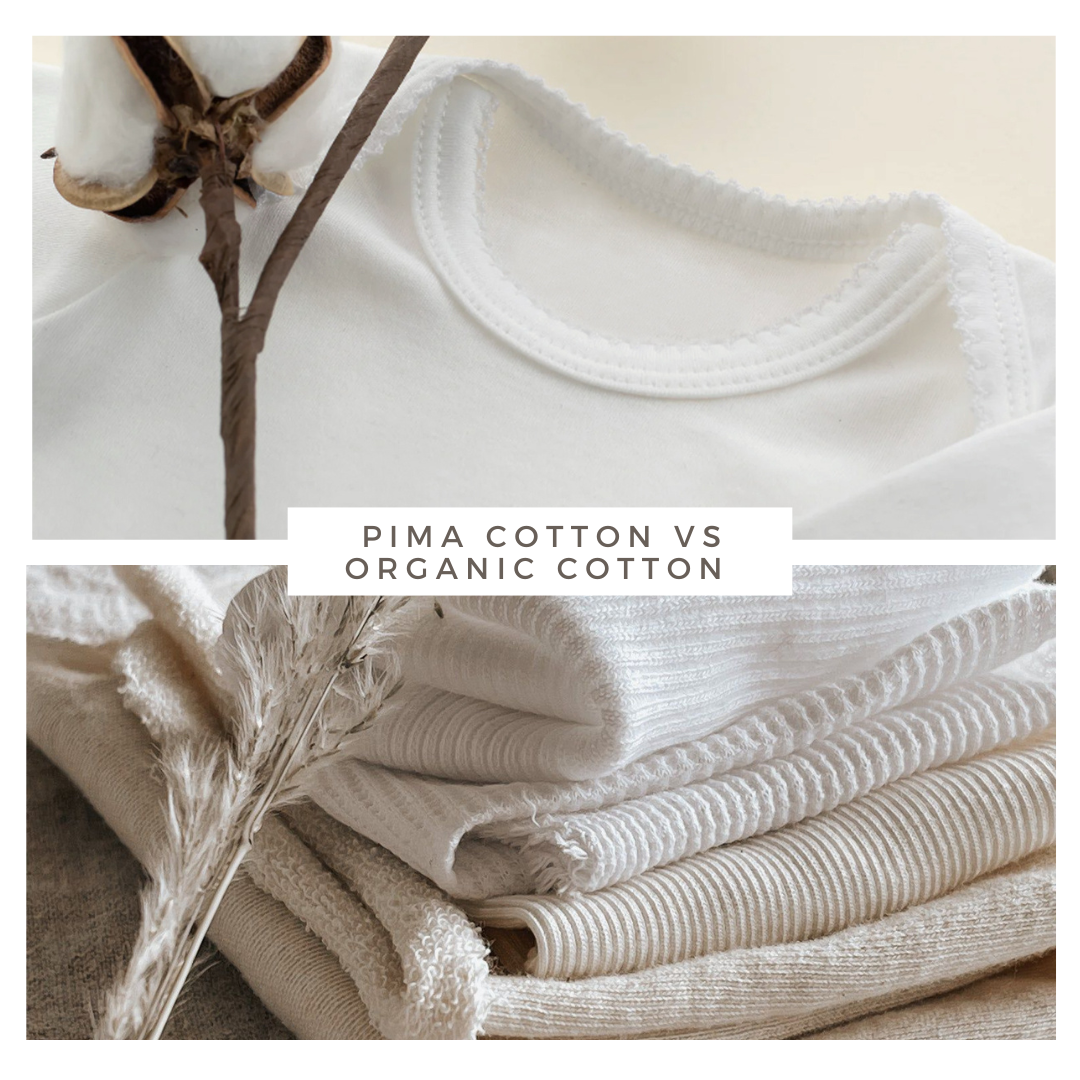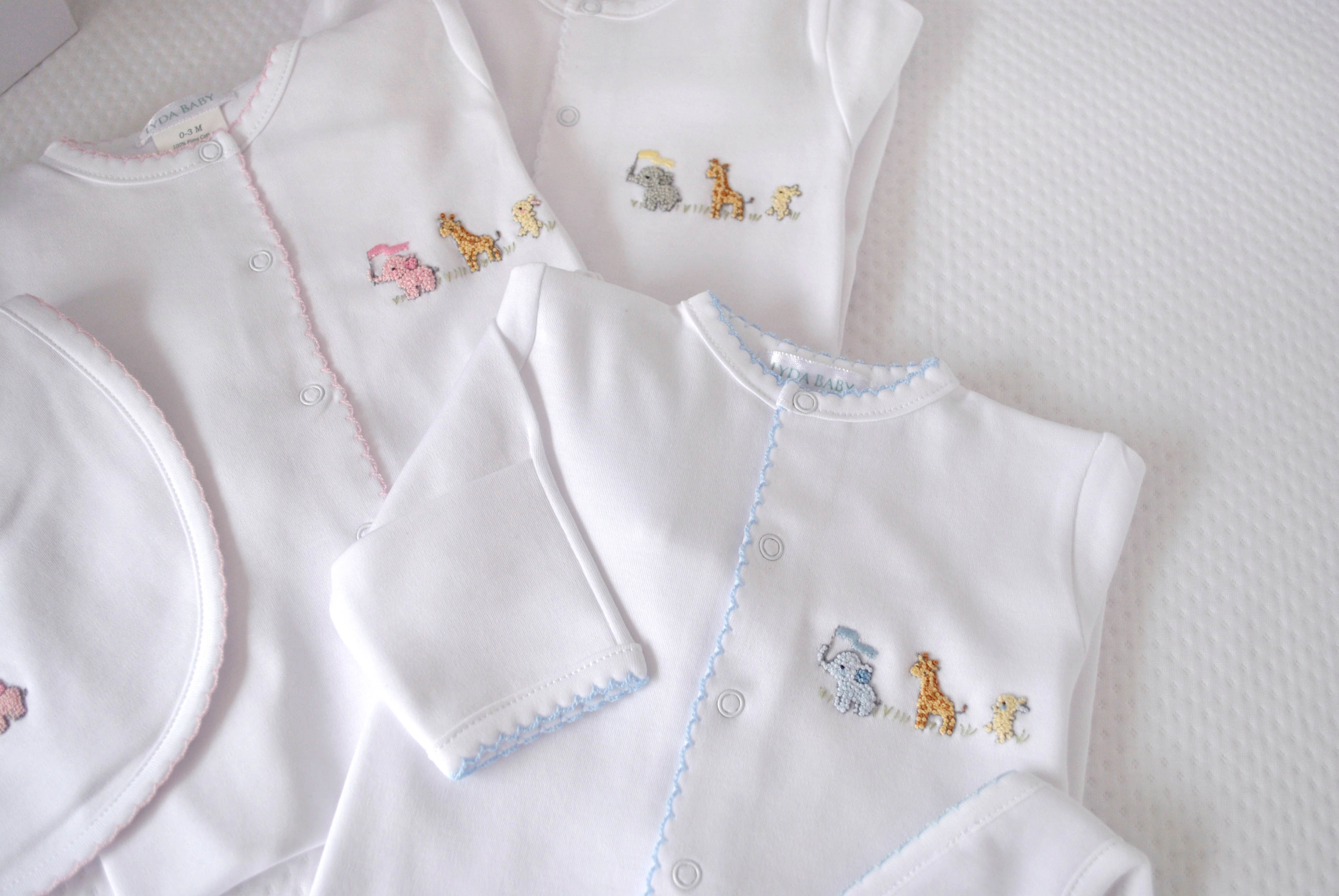
Pima Cotton vs. Organic Cotton: Which is the Better Choice?
Cotton has been a staple in the textile industry for centuries, offering comfort and versatility to clothing and home textiles. With the rise in eco-consciousness and sustainability concerns, two varieties of cotton have gained prominence in recent years: Pima cotton and organic cotton. In this article, we'll explore the differences between these two cotton types, highlighting their unique qualities and benefits to help you make an informed choice.

What is Pima Cotton?
Pima cotton, often referred to as "the silk of South America," is a high-quality cotton variety known for its exceptional fiber properties. Originating in Peru, Pima cotton is now also cultivated in the United States, Australia, and other regions. Its fibers are remarkably long, making it highly durable and offering a luxurious softness.

What is Organic Cotton?
Organic cotton is grown using eco-friendly and sustainable farming practices, avoiding the use of synthetic chemicals, pesticides, and genetically modified organisms. This ensures a reduced environmental impact and a healthier end product for consumers. Organic cotton is cultivated in a way that maintains soil fertility and promotes biodiversity.
Comparison of Fiber Quality
Pima cotton stands out with its exceptionally long fibers, contributing to its superior strength and durability. In contrast, organic cotton fibers, while not as long, offer a remarkable softness that appeals to those with sensitive skin. The choice between the two depends on the desired characteristics of the end product.
Environmental Impact
Organic cotton farming practices prioritize sustainability, reducing the overall environmental footprint. It promotes healthy soil, conserves water, and avoids the use of harmful chemicals. On the other hand, Pima cotton, like conventional cotton, can be water-intensive and may involve chemical use, though sustainable alternatives are emerging.
Chemical and Pesticide Use
One of the most significant distinctions between the two cotton types lies in their farming methods. Organic cotton ensures that no harmful chemicals or pesticides are used, making it a safer and more eco-friendly choice. Conventional cotton, including Pima cotton, may involve chemical use, posing environmental and health concerns.
Health Benefits and Allergies
Organic cotton is hypoallergenic and gentle on the skin, making it an excellent option for those with allergies or sensitive skin. Pima cotton, while soft, may not be suitable for everyone due to potential sensitivity to the chemicals used in its cultivation.
Cost and Availability
The price of Pima cotton products tends to be higher than that of conventional cotton due to its superior quality. On the other hand, organic cotton products may also carry a premium due to the more labor-intensive and sustainable farming methods. Availability may vary depending on the region and consumer demand.
Durability and Longevity
Pima cotton's durability ensures that products made from it, such as bedsheets and towels, can withstand frequent use and washing. Organic cotton products, although not as sturdy as Pima cotton, can still have a long lifespan if properly cared for.
Social and Ethical Aspects
When it comes to the ethical considerations of cotton production, organic cotton often shines as it adheres to fair trade principles and ensures better working conditions for farmers and laborers. Pima cotton may or may not follow similar ethical practices, depending on the specific source and brand.
Suitable Uses for Each Cotton Type
Pima cotton's strength and luxurious feel make it a preferred choice for premium garments and high-end bedding. On the other hand, organic cotton is embraced for everyday clothing and baby products due to its skin-friendly nature and eco-conscious appeal.
Fashion and Industry Trends
Both Pima and organic cotton have gained popularity in the fashion industry as sustainable and comfortable choices. Consumers are increasingly showing interest in eco-friendly textiles, leading to a surge in demand for organic cotton clothing and Pima cotton luxury wear.
Care and Maintenance
To ensure the longevity of Pima and organic cotton products, proper care is essential. Washing in cold water and using mild detergents are recommended for both types. While Pima cotton products may resist wrinkling, organic cotton items may require ironing to maintain a crisp appearance.
Environmental Certifications
Organic cotton products often carry certifications such as GOTS (Global Organic Textile Standard), indicating compliance with strict organic farming and processing standards. Sustainable Pima cotton may also be certified by organizations promoting ethical and environmentally responsible practices.
Conclusion
In conclusion, the choice between Pima cotton and organic cotton depends on individual preferences, values, and intended uses. Pima cotton boasts remarkable strength and luxury, but its environmental impact may be a concern for eco-conscious consumers. Organic cotton, on the other hand, offers softness and sustainability, making it an attractive option for those seeking eco-friendly alternatives. By understanding the characteristics and benefits of each, you can make an informed decision that aligns with your values.
FAQs
1. Is Pima cotton better than organic cotton?
Pima cotton is not necessarily organic cotton. Organic cotton is simply cotton that has been organically farmed without harmful pesticides or chemical inputs. On the other hand, Pima cotton is a type of premium cotton with a long fiber length, which is a characteristic also known as ‘extra long staple’ (or ELS). Clothes made from this type of cotton tend to be soft, durable, and long-lasting.
However, there are some brands that offer organic Pima cotton. For example, Nation LTD offers organic Pima cotton that is USDA and GOTS certified organic.


